Many small business owners aren’t sure how to set up a pension plan that works best for their company and employees. There are three basic types of pension plans, and each type works best in different situations. This guide can help you determine which plan is best for your business and employees so you can ensure everyone has the retirement savings they need to live comfortably after retirement.
Plan Overview
Pension plans are a great tool to attract and retain high-quality employees. To select a good pension plan, you’ll need to understand what plans are available and how they work. The right choice will depend on your individual needs. The most common types of plans include defined-contribution plans; hybrid cash balance plans; single-employer defined benefit (DB) and multiemployer DB pensions; and nonprofit DBs.
Your plan can be either contributory or noncontributory: In contributory plans, employees contribute as well as employers. In noncontributory plans, employers pay all contributions. Small businesses with few employees—under 25—401(k)s are usually one of the best options because they combine employee and employer contributions in an easily administered way. One drawback to 401(k)s is that participants need to choose their investments carefully and monitor them overtime to make sure they’re meeting retirement goals. Because these tools come from a variety of sources (from human resources software packages to financial planning companies), it’s a good idea to check at least three providers before making a final decision on what will work best for you.
Defined Benefit Plans
In a defined benefit (DB) plan, employers fund specific retirement payments to their employees. Employers usually pay a set amount every month into an individual account for each employee who participates in a DB plan. A defined benefit pension is calculated using factors such as age, years of service, and final salary. When employees retire, they receive a monthly payment from their employer’s account that replaces a percentage of their salary during employment.
Qualified Plans
Why They’re Better Than Roths: Traditional, or qualified, retirement plans like 401(k)s and 403(b)s offer several advantages over Roths: Your contributions are tax-deductible. You won’t pay taxes on withdrawals during retirement. And if you make your withdrawals after age 59 1/2, there won’t be any penalties. There’s no limit to how much you can save in a traditional plan — they allow annual contributions of up to $18,000 in 2018 — while 2018 Roth IRA limits are $5,500 per person. Roths also come with restrictions that traditional plans don’t have (see below). With either option, though, it pays to look into all your options before investing.
Profit-Sharing Plans
As a small business owner, you have many different options when it comes to setting up employee retirement plans. Most people don’t think about their retirement plans until they are at least in their fifties, if not older. But what about your employees’ futures? Profit-sharing plans offer a good way to incentivize and reward hard work by setting aside money from each paycheck and distributing those funds once a year. However, profit-sharing plans aren’t always best; there are other types of employee retirement plans that can be more beneficial to you and your employees. What should you look for when deciding which type of business retirement plan is right for your company?
When deciding on a type of business retirement plan, ask yourself how much time will pass before all of your startup capital has been paid back to investors or creditors through loans or lease agreements.
Money Purchase Plans
This type of plan lets you set aside tax-deferred funds over some time. Your employer gets to decide how much money you contribute each year and when you can start taking distributions from it. This arrangement makes it an excellent choice for people who want to contribute a lot of money towards their retirement plans, but it can also be pretty risky, especially if they have no other source of income. However, some employers combine these with 401k plans or add additional features like life insurance.





